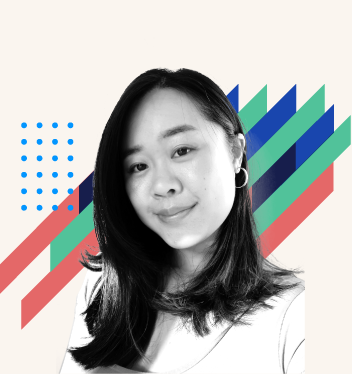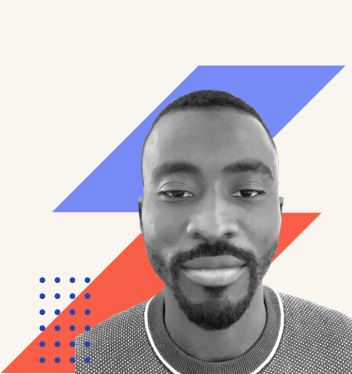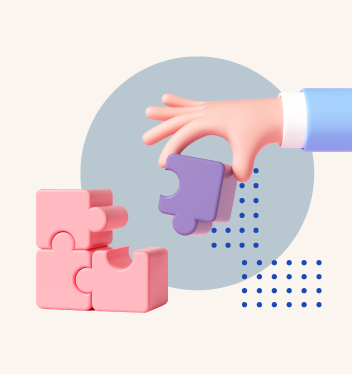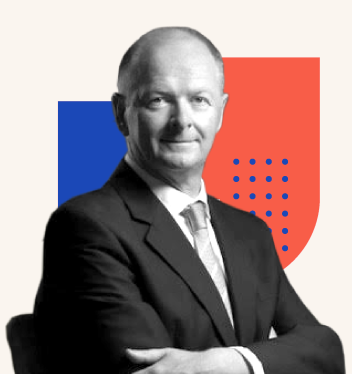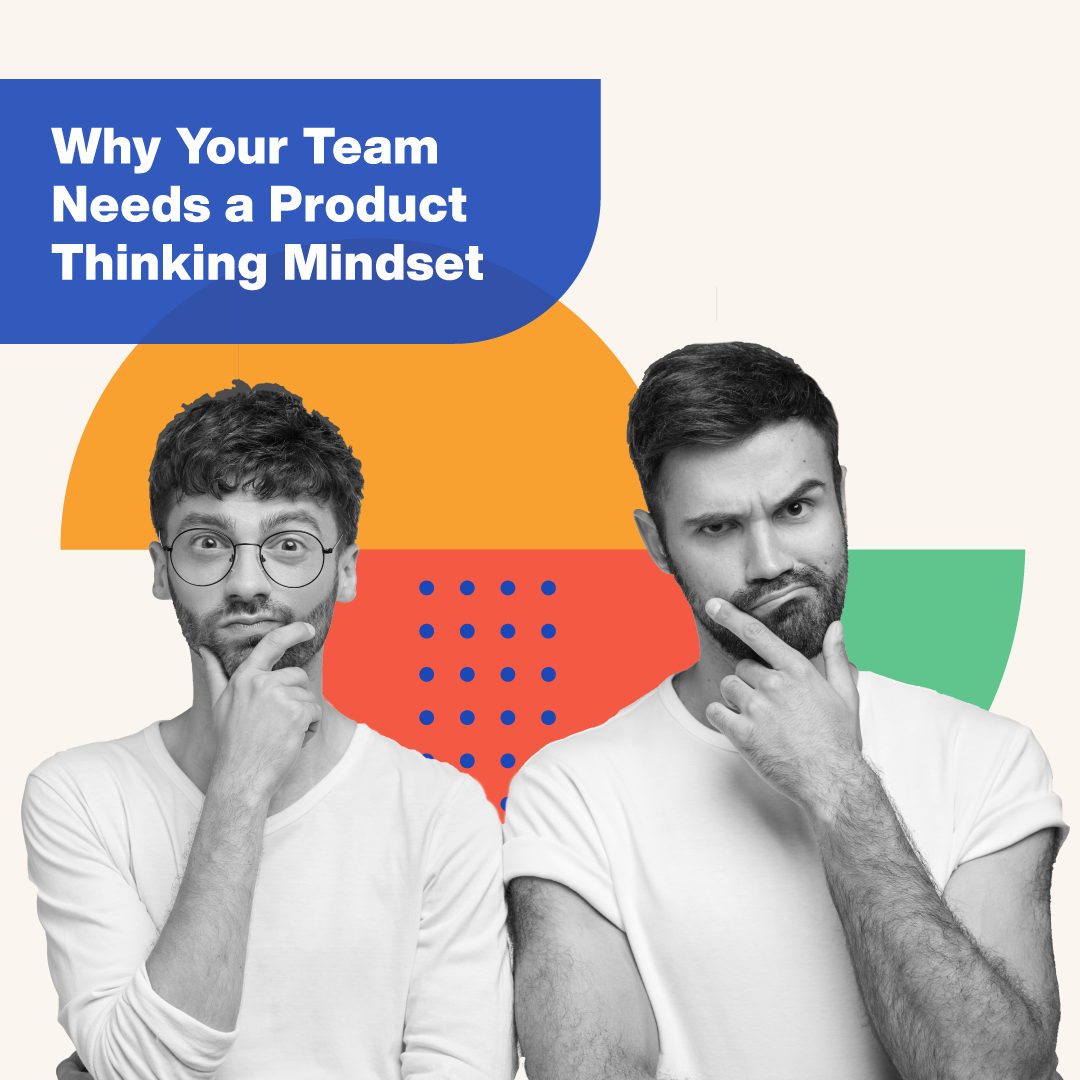An engineer by training, Wingkei Hoang now works as a UX designer at Third Space Learning and is also a professional artist living in the UK. She talked to us about redundancy, becoming an artist, and taking a leap into the unknown to change her career.
Wingkei, please tell us a little about your study journey.
I was one of the straight-A people at school. I had good marks, and good friends and I enjoyed studying – it was all I really knew. It was a culture where if you didn’t get top marks constantly, you were seen as stupid. There wasn’t any recognition that people might learn in different ways. It’s only in hindsight I can see how narrow-minded the world I was in was, and that because of it I was living in a bubble.
I ended up doing a civil engineering degree, which was five years. This included two years of studying, a one-year working placement, and then another two years back at university. It’s essentially an integrated master’s degree, which is pretty standard for engineering.
If you don’t do a master’s it feels quite pointless to even study engineering. So many people go to university and get degrees – just having one doesn’t make you stand out from the crowd. You’ve got to do more.
What was studying like for you?
It was tough. Civil engineering is a very hardcore degree because it requires you to excel in so many different, diverse things. You end up feeling like you have to be good at everything to stand out. For example, we would cover maths and do a lot of coding, but knowing code wasn’t enough. Things like also knowing how to sketch a building, present ideas well, and work with others counted just as much.
Ironically, because of this, I had to draw on so many different aspects of myself and that was the challenge that I enjoyed the most. I knew I had all of the skills inside me – I had always had them – and I really liked having to work on them, even when it stretched me. I remember certain projects where I felt absolutely in my element, and these were usually the ones where I had to draw on both people and technical skills simultaneously.
Saying that I found subjects like pure maths or pure physics incredibly difficult! Coding was another one – it was a whole new language, and I just could not wrap my head around it.
You mentioned you were always an artistic child, and later a straight-A student. So did these two sides of you come together at university?
In the first year or two, yes. Engineering is marketed to you as a very creative field and degree. But after the third year, when I had to do the work placement, I realized it wasn’t. I worked for a massive construction company and felt like a tiny cog in a big wheel. My work never got read, which made me wonder what I was even doing there.
After this year, and after seeing what working life was like, I already knew I didn’t want to do engineering. I decided, however, not to quit my studies, as I was already halfway through, and I also knew it was a degree that could get you places (which I was grateful for).
In hindsight, I wish I had taken a gap year out between school and university. It would have made me into a more well-rounded person, and I may have gone on to do something different – or chosen differently. Who knows. There was a stigma around doing this then, which is why I didn’t. The stereotype was that those who did were flakey, travelling on mom and dad’s money and coming home spouting useless wisdom!
What did you do after graduation?
When I graduated as an engineer, I fell back on doing what I did know I loved, which was researching and learning. I got a job at a start-up in environmental and climate change research. It was more story and word-based and much more interesting.
In so many ways, this was a great first step for me as I suddenly saw the immediate results of my work. With civil engineering, one can design a building conceptually, but not know for the next 30 years whether it’s any good or not! The time it takes to see results is so long that when you do, you just don’t care about it anymore.
The new job was a good learning curve, but I only ended up doing it for six months. COVID hit, I got put on furlough for a few months, and then was finally made redundant.
Wow! How did you feel?
It was actually the best thing that ever happened to me.
I feel privileged to be able to say that I benefited from the pandemic. I was able to move back in with my parents for some financial stability and being on furlough gave me the time to figure out what I really wanted to do.
I also took up drawing. I had been pretty artistic as a child and was always drawing and making things. I’d always thought about becoming an artist, but I never really entertained the idea in practice. At university, I’d wanted to pick it up, but I couldn’t as I was studying all the time. Now there was no excuse! I had to stay in, we were in a lockdown, and I was being paid but couldn’t work.
So I bought myself an iPad and downloaded a software called Procreate. There is a local church near where I live that was running life drawing for only about five pounds per three-hour class. I started going (and still go today) and my art journey began.
Did you return to work?
No, to my surprise, I didn’t! I’d assumed that when furlough ended my company would take me back. I had a weird sense of confidence and believed they would need me to return because no one else could do my job. Little did I know they would change their entire business model and start downsizing!
This period of unemployment became one of the scariest times of my life. I just wanted to get myself back into work as quickly as possible. Every morning I woke up and thought: “what am I going to do all day?”
I was applying for a million jobs, but I didn’t know what I wanted to do. And so after a while, I started thinking again about further study and potential career changes. I went back to some of the ideas I’d looked at after I graduated. One of them was UX design. I looked into it more, and I liked what I saw. UX combines both creativity and technical ability, which suited me.
What did you do next?
I created an entire spreadsheet of the pros and cons of all the many, many companies offering courses out there!
The courses that ticked my box had to include lots of one-to-one interaction with instructors, and be reasonably priced. Skills Union ticked both. They gave discounts for both females and people from BAME backgrounds. That made me think they respect individuality and give marginalized groups a chance.
After speaking with someone from the career services team, Maria – who is just a magical woman! – I felt I really wanted to be in this community. She made such a good impression and helped me see I had had tunnel vision about my career before and there were other possibilities. After that, it was just Skills Union or nothing.
Did you study and work at the same time, or were you still unemployed?
I’d got part-time work as a social media manager, so I was able to accommodate the part-time learning and part-time working juggle. I will say, though, that the course ended up being a lot more intense than I’d expected. It was especially hard in the beginning. There was a lot of group work and teamwork with people who I’d never spoken to before or met in person!
If you’ve ever tried to coordinate a project completely virtually you’d know that adds an extra challenge! When the instructor moved us on to the next module and announced that we would be going off to do our projects separately, I really started to get into it. I liked doing things in my own time and I enjoyed the flexibility.
Did you like your cohort?
I learned from the other students. It was a small class, which meant whatever I said felt safe, and that it was a safe little space. All the students worked in different industries, such as primary school teaching, tech, or architecture. My entire class was female! Perhaps it was because of the discount for women at that time.
The course showed me what a culture of learning and feedback felt like, and that it was important to share what was on your mind. We would have one on one instructor feedback and check-in sessions. Most of the time I’d show up and didn’t have much to say, but it was so nice to be given the chance or the option to speak up if I needed to.
Did your confidence change during your studies?
Yes! It’s really hard to attribute where my increased level of confidence has actually come from, though. I think both my art and my studies contributed. Some of it came from parts of the course where I experienced some difficult parts and felt like I wasn’t getting along with my team, for example. When that happened I would always go back to the instructor, Elia, and ask for advice. I felt like he was always there for me, that I always had someone to talk to.
Learning virtually and presenting work virtually also made me more confident. I’m someone who finds public speaking very, very difficult – actually, the hardest thing ever! But having to do it in my own space, and having some notes in front of me on the screen which no one could see, really helped build my confidence.
The artwork that I was building on the side also boosted my confidence. I’ve ended up meeting a lot of people online through my arts community, which has really given me more confidence to meet more people and connect with them naturally.
It’s all made me more of a people-centric person. I used to be a hardcore introvert. I now find being by myself draining which I never thought would happen. It still feels like a crazy concept! So, it’s been a mixture of both my Skills Union course and my new art journey.
You had an interview in your final few weeks of the UX course. Tell us what happened!
It was a crazy last few weeks, as I got an interview the week before I graduated from Skills Union, for a UX job! I applied with a portfolio which at that stage was only in black and white, and unlike some of the other candidates, I didn’t have any formal education in graphic design.
I was invited to do a trial, which involved redesigning some very badly made Powerpoint slides on learning theory for primary school kids. I had to do this on Figma, which is UX industry-standard design software.
I ended up getting the job and to this day I don’t know how, as I was up against proper arts students and visual artists! These were people who knew how to do interaction design and things I’d only just learned in the final two months of my course!
They later told me there were other qualities that they were looking for, which I had. I could think about what people needed and empathize with users. The other people didn’t put their creative spins on the slides, which I did, and they didn’t think about the end-users (children) in the way I did.
I started my new job two days after my final graduation deadline with Skills Union. That deadline was on a Saturday, I celebrated my birthday on Sunday, and on Monday, I started my first day of work!
I’d actually wanted a little break before starting, but I’m so grateful to have this job.
How amazing! What’s next for you Wingkei?
Who knows what might happen in the future, but I’m feeling good about the work I’m in, particularly the culture. The work is very flexible and there’s a good culture of trust – nobody is monitoring anyone’s working hours. The design team is small and it’s a close little community. It feels very much like Skills Union.
Aside from my UX job, after work, I’ve tried to get myself into the practice of drawing a little bit every day. I’ve put my art out into the public and am turning it into a side profession. I now live two parallel lives!
Finally, what are some of the ways you’ve changed over the last 18 months?
To be honest, I don’t really recognize the person I was before the pandemic! I was so insecure, and lacking in confidence.
A big change has been turning into an extrovert. It’s made me happier because I don’t feel as lonely anymore. I’ve also started a journal, which I kept by my bedside. I’m a very self-reflective person, and I find it so helpful to write in this every single day before I go to bed. I think they call it a ‘highlight of the day’ journal. I don’t know how I functioned without it before because it’s really helped me appreciate so much more just by writing things down.
Before, I always had the notion that life wasn’t going to get any better. I thought I should just settle and not even try and reach for more. That’s not where I’m at now. These days I’m really trying to make the most out of life. I don’t regret anything I’ve ever done or any of the career choices I’ve made. I believe all of these decisions have gotten me to where I am today.
I’m very happy. In fact, I’m probably at the peak of my life now.



